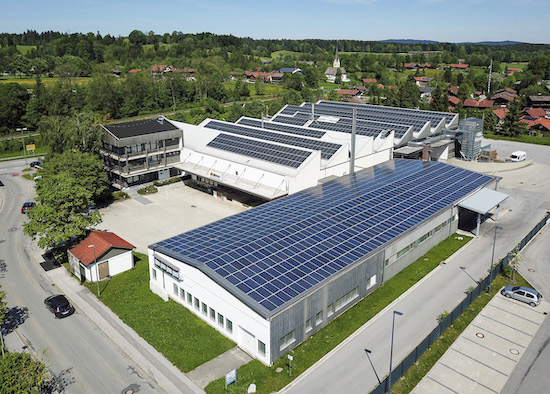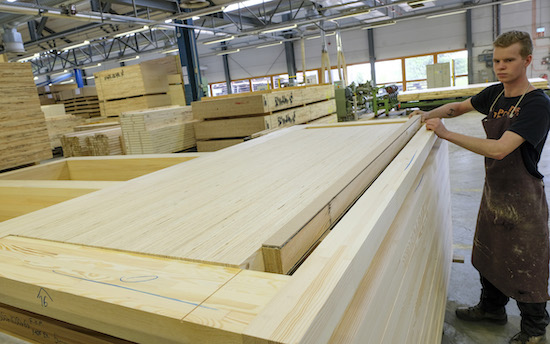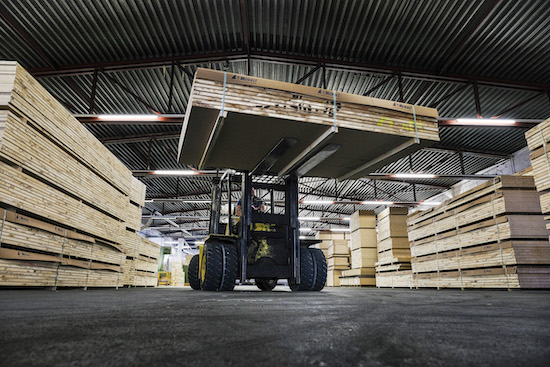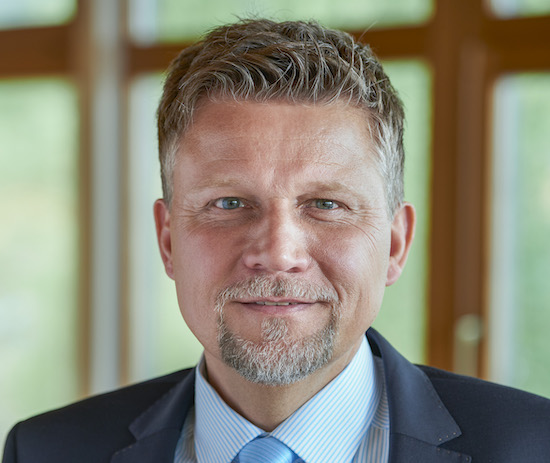Moralt implements strategy to remain open
27 March 2020German door blank manufacturer Moralt has been quick to develop a strategy to see it through the coronavirus disruption and it looks to be paying dividends.
As a major employer in a small Bavarian community Moralt felt it was necessary to both ensure production could continue through the disruption caused by the coronavirus and also ensure the company would remain in a good financial position afterwards.
The company, a major supplier of door blanks to the UK, said it had a full delivery load leaving Munich today (Friday, March 27) be delivered to James Latham in the UK on Monday.
The company was quick to recognise that supply chain disruption would be the immediate issue as different areas and countries faced growing problems with the spread of the virus. To counter this it used its firm financial position to secure additional materials and components to maximise its stockholding across the whole range of suppliers.
“What we have done, as soon as we saw this virus appear in other countries we bought more raw materials and components and maximise our stock,” Klaus Feile, managing director of Moralt, told TTJ.
“Our special magnesium board is from China and we just managed to order that in time. As soon as the virus spread to Italy we contacted our Italian plywood veneer suppliers and ordered more stock from them. Some did not arrive before their country was closed down but is still on order for when the companies re-open.”
“So far the materials that we have received in the past few weeks leaves us in a very good position to carry on manufacturing. Luckily we have a very good liquidity position so were able to use that to buy more stock.”
“As the virus spread to countries like Poland, where we do buy some products, we switched to sourcing from Slovenia. And we have bought some items from German suppliers too. They have been more expensive but supply has not been affected and we can guarantee the FSC trail so we decided to do that and absorb the additional costs rather than raise the prices to our customers.”
“We now have enough stock of some components to keep going for the next two-and-a-half months at normal manufacturing levels.”
The next issue to resolve was how to keep the workforce healthy and safe.
“All of our staff who can work from home are doing so. We invested in the hardware and video conferencing technology and other software to enable everyone to stay connected and share files and documents,” added Mr Feile.
The next innovative plan was to split the remaining staff into two teams. Manufacturing a production staff have been split into two shifts which should never meet on site as there is a time gap between the end of one shift and the start of the next.
Similarly the sales staff have been spilt into teams and they alternate one week in the office, one week working at home. This enables them still to access and share files and documents on site but if any member of the production or sales staff fall ill they have another team which is able to continue.
On site the health and hygiene aspect was driven largely by the workforce themselves. “Some of our workers have Italian roots and the have suggested very good ideas for limiting exposure to any virus risk. Just simple procedures like not latching doors when they are closed so that staff do not have to use the handles. And they have generally been very careful for hygiene,” said Mr Feile. “We are also minimising contact with customers and suppliers as far as possible and no-one is permitted on site unless it is to carry out critical work.”
Looking at the business position now, working through the virus disruption and towards the future Mr Feile was quite confident. “It is a shock for all of us. We have not yet been hit like restaurants and other companies which were closed down.”
“I hope we are well prepared. We will see if our preparations were good enough or not. So far all of our employees are on site and we are carrying on manufacturing as usual. When we look at the figures for the first quarter of 2020 we are ahead of this time last year by 14%. So it does not look like a crisis yet.”
“No one knows what this disruption will bring but Moralt is in a very good financial position so I think we can overcome this more easily than many others. We have a very good return on equity capital, our banks support us and the German government also supports business. We are in a very good position.”
“We are also planning some more large investments as soon as the crisis is over. We will be buying new CNC machinery and a new ERP software system. It is all on hold at the moment until the crisis is over. We are focussing on people’s health but also trying to limit the damage on the company.”
“My only advice for other companies and particularly our customers is to carry more stock to see you through the crisis.”


